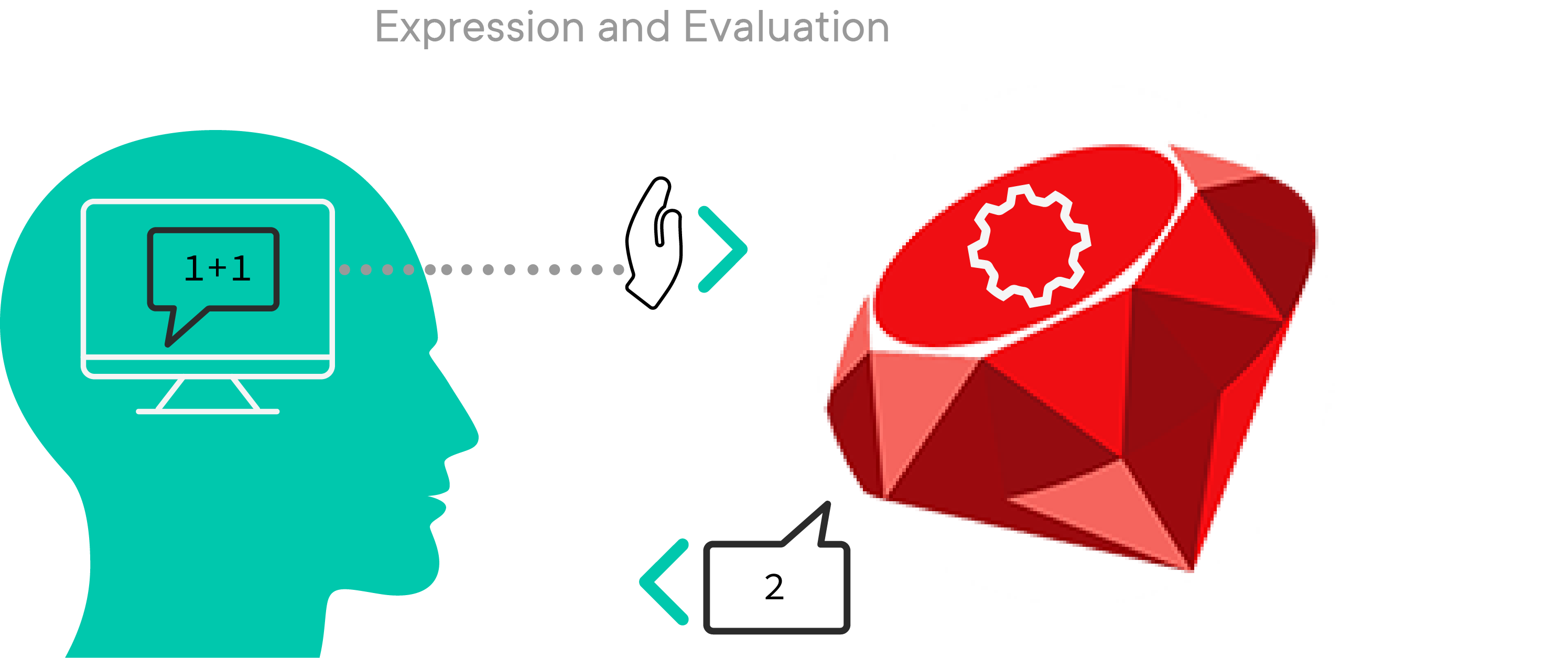- Define "Expression"
- Identify the Parts of an Expression
- Identify Core Operators in Ruby
- Define "Evaluation"
We've seen that we can have a conversation with Ruby by using the IRB program. Conversations, we've seen, are the things that result when two individuals — be they human or machine — communicate expressions to one another.
We've been imprecise in defining "expression" while we were getting the hang of it. Let's propose formal definitions for expression and evaluation.
An expression in a programming language is like a sentence in a spoken language.
Some sentences are simple: "He wept." Some sentences are complex: "I sing of weapons and a man, an outcast of Troy who was driven to the shores of Italy..."
Some expressions are simple: 2. Some expressions are complex 1 + 2. Some
expressions are really complex: 10 + (3 * ( -1 ** 3) + 2) / 18.
Definition: Expression: A combination of information called data and symbols indicating how to combine data called operators.
Evaluation is the process of interpreting an expression, according to rules, to produce a return value.
These definitions should align with your experience of having a conversation
with IRB from the previous lesson. Think about 255 / 5. Which parts of the
expression are data? Which parts are operators?
PRO-TIP: Think it through yourself. Which is a given thing (data) and which parts tell you how to combine things (operators)? When reading technical documents you can't simply read the answers, you have to think along not merely read. You're not reading a gossip site or a sports story, co-participation is needed to help your brain learn that this stuff is important!
The data are: 255 and 5
The operator: is /
In this example, there is only one operator. It's certainly possible for
expressions to have multiple operators like 100 + 10 - 3. In this example,
the operators are + and -.
Here's a table of other operators and their operations. Fortunately, all these operators are either the same or nearly the same as their mathematical partner, so you probably know all the operators you're going to need to get started.
| Operator | Operation | Note |
|---|---|---|
+ |
Addition | |
- |
Subtraction | |
* |
Multiplication | We use * instead of × because it looks like x-the-letter |
/ |
Division | We use / instead of ÷ because that's not on a keyboard |
** |
Exponentiation | We use ** instead of ^ because ^ means something else in programming languages |
() |
Association | Expressions inside of () get evaluated earlier |
In the next few lessons, we're going to introduce the Essential Three Expressions:
- The constant expression
- The assignment expression (variable assignment)
- The variable lookup expression
All expressions, which are the core of every programming language are built on these Essential Three Expressions.
Let's visit the mysterious, yet oddly dull first of the essential expressions: The Constant Expression.

